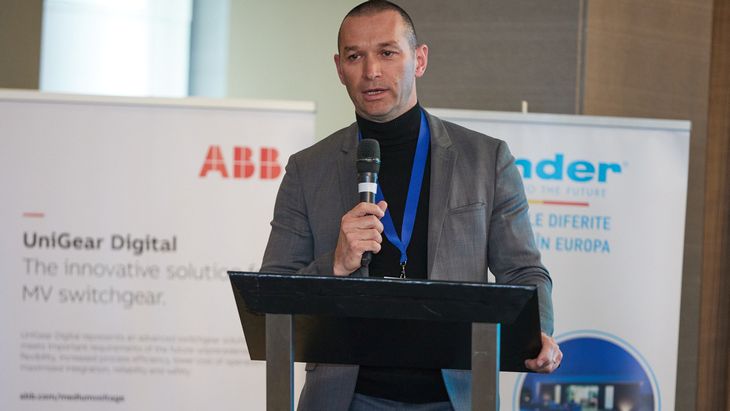Romania committed to the EU to include in its energy system a capacity of 8,000 MW installed in renewable units until 2030, and the first challenge of the system is their integration in parallel with the flexibility of the existing networks.
“The flexibility of the networks must be increased as quickly as possible. Digitalization will certainly play an important role. The interest in distributed generation will change the role of distribution operators because in the future they will also have to be concerned with balancing their networks, which is a new role for them,” said Zoltan Nagy-Bege, vice president of the National Regulatory Authority in the field of Energy (ANRE), at the conference “More renewables for Romania”, organized by Energynomics.
He added that the change is necessary for the future operation of these networks, especially since it is “clear that interest in renewables is growing”. Moreover, a series of projects will materialize this year. According to Bege, ANRE made, during 2022 and during 2023, “small adjustments” to the regulation for connecting production capacities to the grid, and most of them support the new production capacities.
ANRE intends, through these changes, to support both the larger and smaller production capacities of prosumers.
System operator Transelectrica has already issued grid connection notices for wind and photovoltaic capacities of over 7,000 MW. Also, there are already signed contracts for units of over 8,000 MW.
In fact, the situation reminds of the one at the beginning of the 2010s, when Romania experienced a strong wind penetration, a process that also came with the failure of many projects.
In 2022, ANRE issued authorizations for renewable capacities of 880 MW, and in the first two months of 2023, it already exceeded the level of 200 MW. “So, in the last 14 months we have issued authorizations for over 1,000 MW. In order to obtain this authorization, the respective companies must also provide proof of financing, so the chances of them being built are very high,” said Bege.
Apart from large-scale renewable projects, a very high interest in prosumer installations is visible. While the number of prosumers tripled in 2022, to over 40,000 installations in operation, totaling a power of 400 MW, ANRE estimates that in 2023 almost 100,000 new installations will be commissioned, totaling 1,000 MW.
The conference “More renewables for Romania” was organized by Energynomics with the support of our partners among which ABB, ACE Industrial Software, BCR, Consolight, Eaton Electric, Elektra Renewable Support, EnergoPower, European Energy, Finder, Geminox, Huawei, ING Bank, LAPP Romania, Marsh & McLennan Companies, Phoenix Contact, Photomate, Prime Batteries Technology, REI Grup, Renomia-Gallagher, Valmont, Volt, Wiren România, Wise Finance Solutions.
